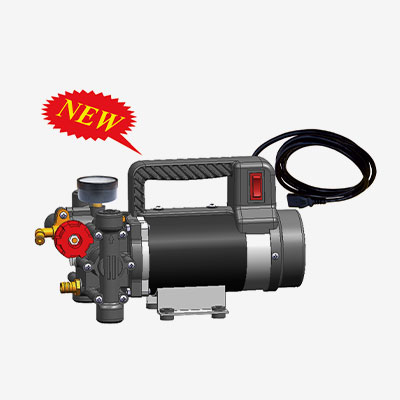An agricultural sprayer pump is a device used in agricultural operations to spray chemicals, such as pesticides, herbicides, and fertilizers, onto crops to protect them from pests and diseases or to promote growth. The pump is responsible for creating the necessary pressure to force the liquid from the tank through the spray nozzles and onto the target surface.
There are different types of agricultural sprayer pumps, including centrifugal pumps, diaphragm pumps, and piston pumps. Centrifugal pumps are often used for low-pressure applications, such as spraying water, while diaphragm and piston pumps are used for higher-pressure applications, such as spraying chemicals.
Agricultural spray pumps offer several advantages that make them an essential tool for modern agriculture. Here are some of the key advantages:
1. Increased efficiency: Agricultural spray pumps are designed to provide a steady and consistent flow of liquid, which makes them highly efficient.
2. Improved accuracy: Agricultural spray pumps can be calibrated to provide precise coverage, which reduces the risk of over or under-application of chemicals.
3. Cost-effective: Using agricultural spray pumps can be more cost-effective than manual spraying methods since they require less labor and can reduce the number of chemicals required for spraying.
4. Versatile: Agricultural spray pumps can be used for a wide range of applications, including spraying pesticides, herbicides, fertilizers, and other chemicals.
5. Time-saving: Agricultural spray pumps can cover a large area in a short amount of time, making them a time-saving option for farmers and agricultural workers.
The choice of the pump depends on the specific needs of the application, such as the type of liquid being sprayed, the size of the area to be sprayed, and the desired pressure and flow rate. Proper maintenance and calibration of the pump are critical for efficient and effective spraying, and to avoid wasting chemicals and damaging the crops.










